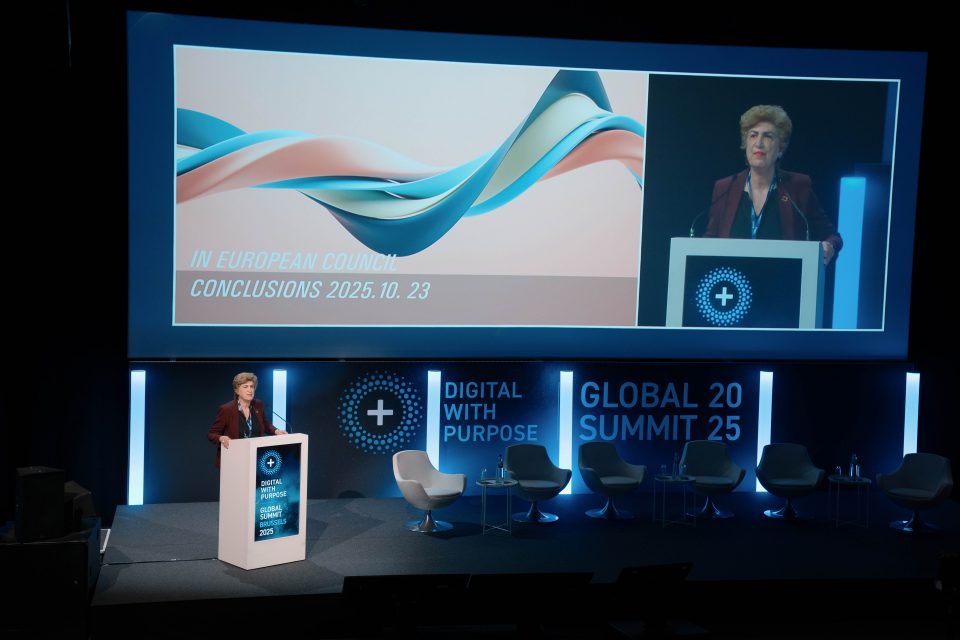As clearly outlined in the Draghi Report , Europe faces three fundamental challenges impacting its geopolitical landscape: closing the innovation gap with the US and China especially in advanced technologies, decarbonising the economy while boosting competitiveness; and enhancing security, reducing dependencies within critical sectors such as healthcare or energy. To face these challenges and leverage Europe’s power and partnerships, the Council of the EU called in 2021 for the Commission and the European External Action Service to develop a European Science Diplomacy Agenda.
The report “A European Framework for Science Diplomacy”, launched on February 13, 2025, delivers on this task by setting a comprehensive roadmap for integrating scientific expertise into foreign policy frameworks diplomacy. The report, with a foreword by Ekaterina Zaharieva, EU Commissioner for Startups, Research and Innovation, gathers the insights from over 130 high-level experts, including Re-Imagine Europa’s CEO Erika Staël von Holstein. This framework aims to empower Europe not only to compete with other global players, but also to promote collaborative solutions to complex global challenges.
“Breakthroughs in fields such as artificial intelligence, quantum computing and biotechnologies have boosted the role of research and innovation as a geopolitical currency. Today, science, technology and innovation translate more than ever into power and geopolitical influence, and this is one of the reasons why they matter for diplomacy”, signals Commissionar Zaharieva in her foreword.
The science and diplomacy experts co-creating the input to the report advocate that a future European Framework for Science Diplomacy should contribute to strengthening Europe’s competitive position as a global science and technology actor, maximising the deployment of European research and innovation potential for the pursuit of peace and multilateralism, and reinforcing Europe’s commitment to managing global public goods and commons sustainably and achieving the Sustainable Development Goals (SDG).

In a world where close collaboration and fierce competition coexist, the experts suggest that European science diplomacy must focus on the following objectives:
• Using science diplomacy strategically to tackle geopolitical challenges in a fragmented, multipolar world;
• Making European diplomacy more effective and resilient through scientific evidence and foresight;
• Strengthening science diplomacy in delegations and embassies and fostering the EU’s global science diplomacy outreach;
• Building capacity for European science diplomacy.
In order to implement these objectives, the report provides concrete recommendations and actions on how European leadership in science diplomacy can be achieved through strategic, operational and enabling instruments, assuming that the first step would be to define strategic priorities around which all relevant parties can be rallied.
To deliver on Europe’s ambition, the report recommends, among other key actions: to make science diplomacy visible as an important component of the external action of the EU and Member States; developing a holistic science diplomacy strategy towards countries not sharing our values, combining a mix of soft and hard power approaches; use science diplomacy to tackle global challenges and sustainably manage global goods and commons, including with partners in the South; and establish the structures needed for EU leadership in science diplomacy, “We need to send a clear message to our partners and competitors that our policy is driven by research and innovation, by evidence rather than unverifiable beliefs, let alone fake information, and that Europe is acting together”, the report concludes.




